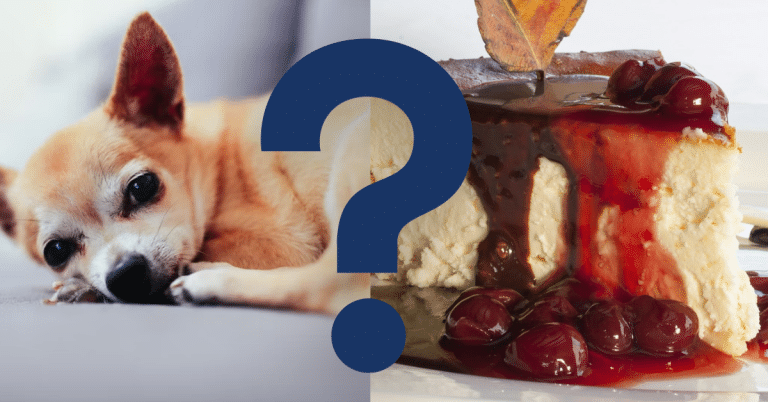Can Dogs Eat Beets? A Vet’s Opinion

Beets are a bright red vegetable rich in vitamin folate and have a healthy quantity of fibre, copper, manganese, and nitrates. But can you feed beets to your dog?
Yes, in moderation, dogs can eat beets. Beets are a fantastic source of fibre, antioxidants, and vitamins, but you should heat or steam them before giving them to your dog because they can be challenging to digest when raw. Dogs can be given beets as a treat or combined with their usual meal, but it’s essential to watch the portion quantities as some dogs may get stomach discomfort or diarrhoea from overeating beet. Before adding any new food to your dog’s diet, it is best to consult with your veterinaria
Benefits Of Beets For Dogs
When fed in moderation, beets can offer dogs several health advantages. Giving beets to dogs may have the following advantages:
Fibre
Consuming foods high in dietary fibre, such as beets, can help dogs have a healthy digestive system. Healthy gut flora and regular bowel motions can all be supported by consuming enough fibre.
Antioxidant Properties
Beets are a good source of antioxidants, including betalains and anthocyanins, which can help the body fight off dangerous free radicals. Antioxidants can strengthen the immune system and assist in preventing oxidative cell damage.
Vitamins And Minerals
Vitamin C, vitamin B6, folate, manganese, and potassium are just a few of the vitamins and minerals that beets are a good source of. These nutrients can help with the immune system, neurons, muscle function, and general health.
Detoxification
Natural substances found in beets can help the liver function and promote detoxification. Beetroot antioxidants can aid in detoxification, supporting healthy liver function in dogs.
Low Calorie
Dogs, especially those watching their weight or prone to weight gain, might enjoy beets as a healthful and nutrient-rich treat because they are relatively low in calories.
Hydration
Beets’ high water content can help dogs stay hydrated, particularly in warmer weather or after exercise.
Dental Health
Because beets require chewing, which can help remove plaque and tartar from the teeth and support healthy gums, beets can help boost dental health in dogs.
Beets can enhance a dog’s health, but they should only be given to dogs in moderation as part of a balanced diet. Some dogs may experience diarrhoea after consuming too many beets. Before adding any new food to your dog’s diet, always check with your veterinarian to make sure it is secure and suitable for your particular dog. Beets should also be boiled or steamed before being fed to dogs because they might be challenging to digest when raw.

How To Safely Give Beets To Dogs
Here is a comprehensive guide on how to feed beets to dogs without harm:
Choose Fresh Beets
When choosing beets for your dog, pick firm, fresh beets without mould, decay, or mushy patches. Organic beets are recommended to lessen the chance of being exposed to pesticides.
Wash And Peel
Beets should be carefully washed to remove dirt or other debris before being peeled and prepared for your dog. Peel raw beets before feeding them to dogs since the outside, rough skin can be problematic for them to digest.
Cook Or Steam
Beets should be cooked or steamed before being given to your dog because they might be difficult for them to digest when they are served raw. Beets are softer and more manageable for dogs to consume after being cooked or steamed. Beets can be boiled, baked, or steam-cooked until they are tender and straightforward to mash.
Cool And Cut Into Small Pieces
After cooking, let the beets cool thoroughly before cutting them into bite-sized pieces for your dog. To avoid burns or pain, steer clear of feeding heated beets. The beets should be cut into manageable portions suitable for your dog’s size and breed. Avoid giving your pet any huge portions that could cause choking.
Start With Small Portions
Start with tiny servings and gradually increase the number of beets in your dog’s diet as you observe how they react. Some dogs may experience digestive problems from overeating beets, such as diarrhoea or flatulence. If your dog tolerates it well, start with a tiny serving—a teaspoon or two—and gradually increase the quantity.
Mix With Regular Food
Beets can be given to dogs as a treat or combined with their usual diet. To improve the flavour and nutritional content of your dog’s kibble, canned food, or home-cooked meals, you can top them with cooked or steamed beets.
Watch Out For Any Adverse Effects
After giving your dog beets, watch for any adverse effects. Beets should not be fed to dogs who exhibit signs of digestive disturbance, such as vomiting, diarrhoea, or discomfort. Instead, it would be best if you visited your veterinarian.
Seek Advice From Your Veterinarian
As usual, you must speak with your vet before adding new food, including beets, to your dog’s diet. Your veterinarian can offer tailored guidance based on your dog’s particular demands, health situation, and nutritional requirements.
Remember that while beets might be good for your dog’s health, you should only feed them sometimes as part of a balanced diet. As they might contain only some necessary nutrients, beets shouldn’t be used instead of your dog’s usual, balanced commercial dog food.
Will Beets Make A Dog Sick?
While beets are generally safe for dogs to consume in moderation, overindulging or serving them uncooked can upset a dog’s stomach and make it ill. Due to their fibrous nature and harsh texture, raw beets can be problematic for dogs to digest and may cause gastrointestinal problems, including upset stomach, flatulence, or diarrhoea. Since beets are relatively high in natural sugars and may result in an upset stomach or diarrhoea if consumed excessively, feeding beets to dogs in big numbers could also result in digestive problems. Additionally, individual tolerance can vary, and some dogs may be more sensitive to beets than others.
Be sure to gradually increase the number of beets in your dog’s food and oversee your dog for any adverse reactions. Beets should not be fed to your dog if they exhibit signs of stomach trouble. Instead, visit your veterinarian for the best course of action. Remember to always check with your vet before adding any new food, including beets, to your dog’s diet to make sure it is secure and suitable for your particular pet, taking into account their age, breed, size, health condition, and dietary requirements.
Can dogs eat beet variations?
Dogs can generally consume cooked, properly prepared beets, including different varieties like red, golden, and Chioggia (sugar cane) beets. But before giving the beets to your dog, ensure they’ve been fully cooked (or steamed), peeled, and chilled. On the other hand, raw beets can be problematic for dogs to digest and may lead to intestinal issues.
It’s vital to keep in mind that moderation is key while giving your dog beetroot variants. Dogs shouldn’t eat beets as their only source of nutrients; instead, they should be included in a balanced diet. Due to beets’ relatively high natural sugar and fibre content, feeding them in excess may result in gastrointestinal problems, including upset stomach, gas, or diarrhoea.

Vet’s Summary
Red, golden, and Chioggia beets, as well as other varieties of cooked and properly prepared
beets, are all healthy for dogs to consume in moderation as part of a balanced diet. Raw beets should be avoided since they could be challenging for dogs to digest. Due to their high natural sugar and fibre content, beets may upset the stomach if consumed excessively. Before introducing any new food, including beetroot varieties, it’s crucial to speak with a veterinarian to be sure it is secure and suitable for your dog’s specific requirements.
Speak with your veterinarian before introducing new foods, including beets, to your dog’s diet. They can offer individualised guidance based on your dog’s particular health issues, dietary needs, and general well-being. Additionally, your veterinarian could suggest probiotic supplements for your dog if they have a history of digestive problems or if you observe any symptoms of digestive discomfort after giving them beets or other novel foods. Probiotics can facilitate digestion and support healthy gut microbiota, which may benefit dogs with sensitive stomachs. Always follow your veterinarian’s advice and suggestions when it comes to your dog’s food and supplementation.
Videos To Watch
If you are wondering if you can give your dog beets, watch this:
And if you want to know what a dog can NOT eat, watch this:






